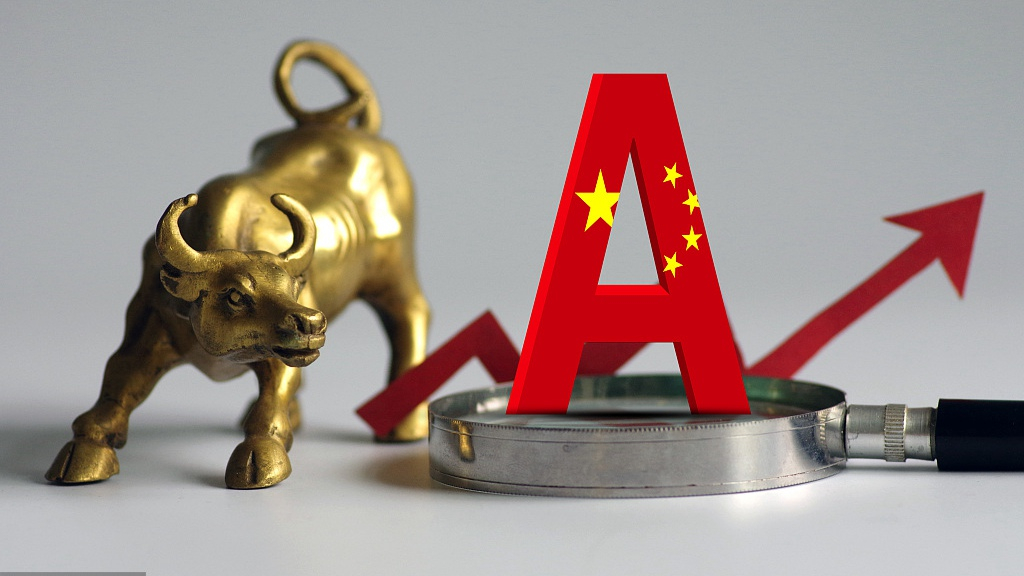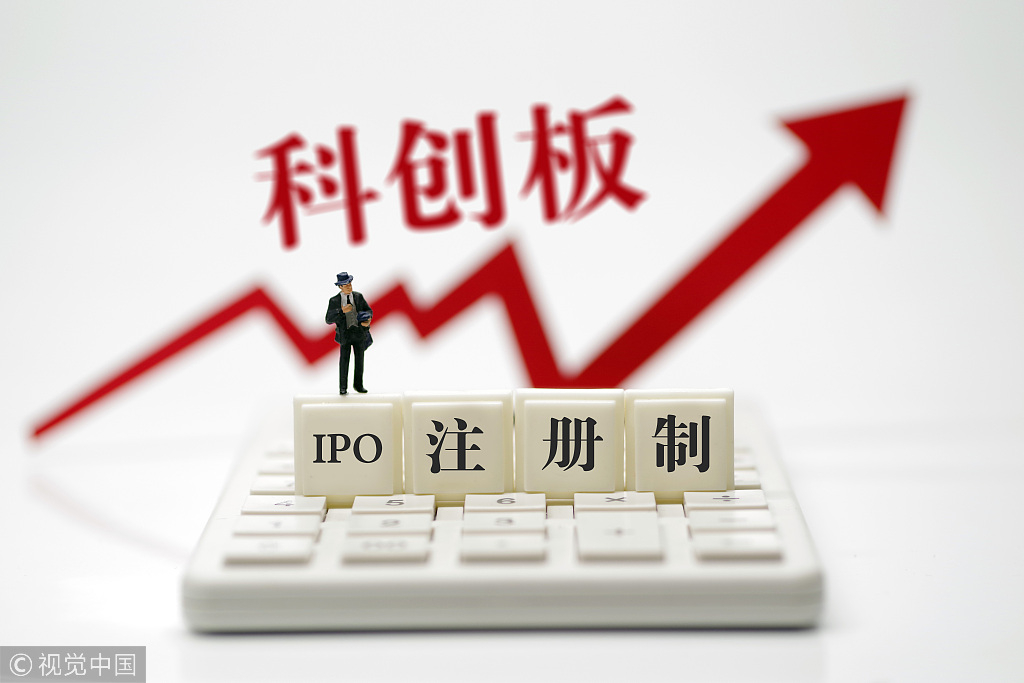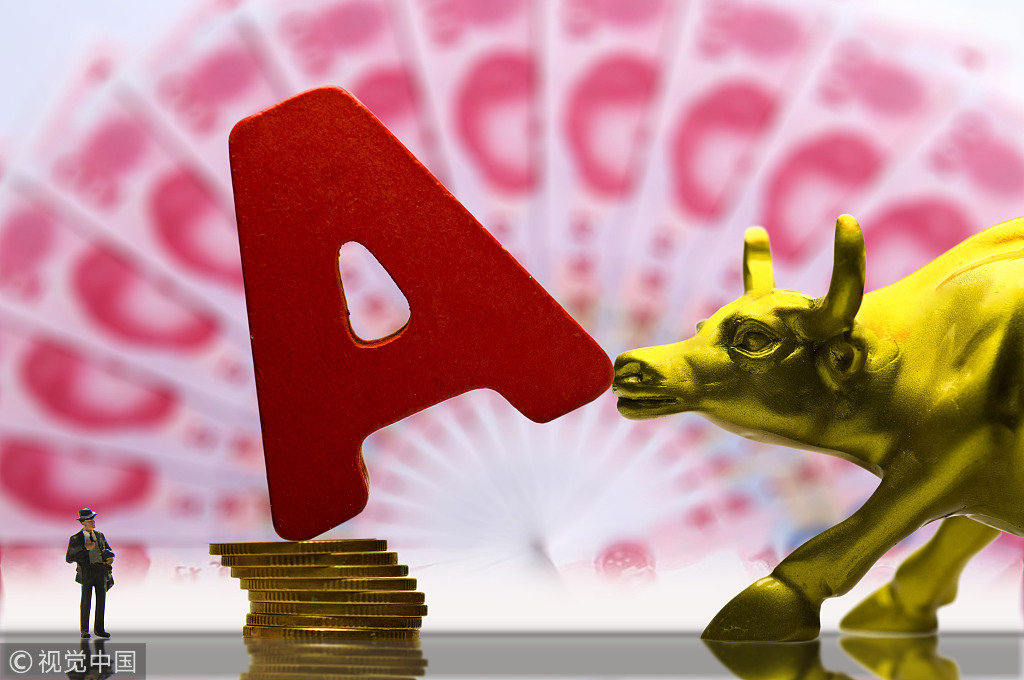
Opinion
12:03, 05-Mar-2019
Will China's Nasdaq-style innovation board soar?
Updated
14:47, 05-Mar-2019
David Lee

Editor's Note: David Lee is a consultant and author based in Beijing who works on cross-cutting themes of energy, health, international politics and international development. The article reflects the author's opinion, and not necessarily the views of CGTN.
On March 4 2019, China's benchmark Shanghai Composite Index rose more than 1% to close at just slightly above 3,000, passing a significant psychological threshold for the first time over eight months.
Many times over, China's treacherously volatile A-shares have played tricks on some of the brainiest institutional and individual investors. Therefore, I'd remain calm and cautious not to suggest any investing moves, despite the seemingly promising start of a bullish drive buoyed by pretty strong investment zeal.
Instead, I'd bring keen investors' attention to the announcement made late last Friday by China's Securities Regulatory Commission to publish the finalized regulations for the upcoming Science and Technology Innovation Board; that is, China's answer to Nasdaq.

VCG Photo.
VCG Photo.
Listings on the new Innovation Board, like those on Nasdaq, would proceed with a registration system, instead of an approval system, as is the case of Shanghai and Shenzhen Stock Exchanges, including the SME and ChiNext Boards as part of Shenzhen Stock Exchange. Another key feature borrowed from Nasdaq is that companies that are yet to be profitable are allowed to be listed on the new Innovation Board.
Short-term investment maneuvers are the reserved thrilling playground for professional traders. What I want to highlight here is the long-term strategic trend as reflected by the upcoming Innovation Board. Building on cautious incrementality, China's financial market is resolutely moving forward, albeit not without its share of upheavals and disruptions.
Over the years in China, the stock market has failed to reflect neither the country's macro-economic dynamics, growing over a healthy six percent on an annual basis, nor its micro-economic liveliness, as reflected by a very vibrant hi-tech startup business scene.

Nasdaq signage sits on the facade of the Nasdaq Swedish Stock Exchange in Stockholm, Sweden, on Thursday, Jan. 31, 2019. /VCG Photo.
Nasdaq signage sits on the facade of the Nasdaq Swedish Stock Exchange in Stockholm, Sweden, on Thursday, Jan. 31, 2019. /VCG Photo.
While leading Chinese tech companies have sought to raise capital in New York and Hong Kong, Chinese regulators have been keen to provide credible capital vehicle within the country. Unfortunately, the SME and ChiNext Boards have both failed to deliver, in part because the ChiNext rules, though markedly relaxed in Chinese standards, remain fundamentally different from those of Nasdaq.
The upcoming Innovation Board, long awaited, might as well fundamentally change Chinese tech companies' capital raising game. Tremendous work has to be done just to avoid the embarrassment of the SME and ChiNext Boards. However, properly managed, there is no reason why the Innovation Board cannot become a credible competitor against New York or Hong Kong.
This time round, at least the market is in upbeat mood. The finalized regulations for the Innovation Board have come at the right time, with rising optimism in the domestic market, coupled with enhanced international recognition of the overall Chinese stock market, as reflected by the increased weighting of A-shares in MSCI benchmarks.

VCG Photo.
VCG Photo.
All combined, even very cautious observers would have to admit some obvious positive signs in the Chinese stock market, a trend that has been developing at least since the installation of a new leadership at China's Securities Regulatory Commission.
Of course, the political will has been repeatedly demonstrated by the country's top leadership and echoed by technocrats to maintain a healthy stock market, one that provides an effective capital raising vehicle to promising businesses and benefits wise investors who choose to believe in China Incorporated. Recalling the top leadership's sincere call for maintaining confidence, I'd say finally current signs are pointing to confidence regained.
Let's cherish this precious confidence. Let's also remember that strong political will must be backed by meaningful policies and practical, adaptive measures. Would China's new Nasdaq-style Innovation Board soar? I hope the answer is yes.
(If you want to contribute and have specific expertise, please contact us opinions@cgtn.com)

SITEMAP
Copyright © 2018 CGTN. Beijing ICP prepared NO.16065310-3
Copyright © 2018 CGTN. Beijing ICP prepared NO.16065310-3